Energy sector
Today, May 14, the People's Representative Newspaper published the information: " Draft Law on Atomic Energy: Proposal to clearly stipulate the nuclear regulatory agency"
According to the Draft Law on Atomic Energy (amended), the Government stipulates a nuclear regulatory agency to perform the function of state management of radiation and nuclear safety. However, experts and National Assembly deputies propose that this agency should be clearly defined in the Law - is this really necessary?
Dr. Dang Thanh Luong, former Deputy Director of the Department of Radiation and Nuclear Safety, also said that the new draft Law states the responsibilities of investors in general terms; it has not yet determined the central role of the National Radiation and Nuclear Safety Management Agency. The responsibilities of relevant ministries and branches such as the Ministry of Science and Technology, the Ministry of Construction , etc. have not been clearly assigned. "The lack of specific responsibilities can easily lead to conflicts and lax management during implementation," Dr. Dang Thanh Luong worried.
Associate Professor, Dr. Vuong Huu Tan, former Director of the Vietnam Atomic Energy Institute, said that the independence of the National Nuclear Regulatory Authority must be respected, especially in the safety management of nuclear power projects. This independence is to avoid “both playing football and blowing the whistle” in safety management, as happened in the 2008 Atomic Energy Law, which assigned the Ministry of Industry and Trade to grant operating licenses for nuclear power plants, while nuclear power plants are under the management of this same ministry.
Import and export sector
Nhan Dan Newspaper reported: "Seafood exports continue to maintain stable growth momentum"
According to the Vietnam Association of Seafood Exporters and Producers, seafood exports in the first months of 2025 maintained a steady growth momentum. In the first 4 months of 2025, seafood exports recorded good growth, reaching a turnover of 3.3 billion USD, up 21% over the same period in 2024. To maintain growth momentum in the context of potential tax risks, Vietnamese enterprises have actively optimized production, expanding to other markets such as the EU, Japan, Korea, the Middle East, etc.
The Business Finance magazine published the news: "Vietnam could become the world's second largest rice importer."
According to the latest forecast from the US Department of Agriculture (USDA), Vietnam is likely to import up to 4 million tons of rice in 2025, thereby rising to the second position in the list of the world's largest rice importing countries, after the Philippines. Specifically, the USDA report shows that global rice supply in 2025 is expected to increase by 1 million tons, reaching 538.7 million tons. However, consumption is forecast to increase more strongly, by 6.1 million tons, bringing total demand to 538.8 million tons, leading to the risk of continued shortage.
Global rice trade continues to increase in 2025 and 2026 with output exceeding 60 million tons. Among the world's largest rice import markets, Vietnam is a surprise with imports likely to reach 4 million tons in 2025 and 4.1 million tons in 2026. Vietnam has become the world's second largest rice importer due to shrinking cultivated areas and increased import demand from Cambodia. In 2024, Vietnam's rice imports are estimated at around 3.4 million tons, after the Philippines and Indonesia.
On the other hand, Vietnam will also surpass Thailand to become the world's second largest rice exporter in 2025. Vietnam is estimated to export up to 7.9 million tons of rice compared to 7 million tons of Thailand and India up to 24 million tons. The rise of Vietnamese rice is thanks to high demand from the traditional market of the Philippines and the return of Chinese importers.
Domestic market sector
Tin Tuc Newspaper reported: "Durian price drops, whip takes the throne"
Durian - a fruit that once "made waves" - has "plummeted" during the harvest season due to export difficulties. Meanwhile, plums have caused a "fever" with surprisingly high prices. According to Mr. Vu Van Duy, Director of AnDeend Agricultural Products Import-Export Company, the reason for the sharp drop in durian prices is that China has tightened quality control of imported fruits since the beginning of this year. Previously, they only checked about 10% of each batch, but now it has increased to 100%. The long testing time has caused goods to be congested at the border gate, and many shipments have been cracked and damaged by the time they arrived due to the long wait. Some businesses have tried to complete the inspection but still had to sell at a loss domestically (40% lower than the purchase price) because they could not clear customs.
According to durian exporters, customs clearance procedures used to take only 1-2 days, but now take 5-7 days. This seriously affects the quality of the fruit. Enterprises are proposing to shorten the testing time to 3-4 days, and at the same time propose to increase the number of domestic inspection centers and negotiate with China to recognize the test results in Vietnam, helping to minimize risks for enterprises.
While durian farmers are struggling due to sharp price drops, the market is witnessing the spectacular rise of MST pink rose apple and green rose apple. These two domestic fruits are "causing a fever" on social media platforms. According to Mr. Dang Phuc Nguyen, General Secretary of the Vietnam Fruit and Vegetable Association, "While the durian industry is struggling to find an outlet, domestic rose apple is quietly rising thanks to quality control and a flexible market approach that stimulates consumer curiosity. This contrasting story once again shows that Vietnamese agricultural products do not lack potential, the problem is whether the way they respond to the market and the supply chain is "immune" enough to risks."
E-commerce sector
Hanoi Newspaper recently published the information: "Thanks to e-commerce promoting the development of Vietnamese goods"
Recently, Tiktok Shop has cooperated with the Center for E-commerce and Digital Technology Development, the Department of E-commerce and Digital Economy (Ministry of Industry and Trade) to implement a regional e-commerce week, called "Go online", in all 6 economic regions. The program's core activities are in-depth training on e-commerce, including: Legal framework, tax management regulations; business development plans; digital advertising solutions to equip businesses and young human resources in localities with knowledge and skills to develop sustainable e-commerce businesses.
 |
| Sharing solutions for selling through e-commerce platforms. Photo: TH |
This is an important innovation. If in the past, the support only focused on helping learners get acquainted with doing business on e-commerce platforms, now it has become more specific and diversified in content, from policies to technical instructions for online sales. Through e-commerce platforms, producers sell products directly to consumers at reasonable prices, which is difficult to do with traditional sales methods. With traditional sales methods, sedge is often sold to traders... so no matter how beautiful the product is, the producer still cannot sell it at a worthy value, while the product reaches consumers at a price 2-3 times higher.
Source: https://congthuong.vn/tin-cong-thuong-145-thuong-mai-dien-tu-tiep-suc-hang-viet-387568.html


![[Photo] Prime Minister Pham Minh Chinh attends the event "Digital transformation of the banking industry by 2025"](https://vphoto.vietnam.vn/thumb/1200x675/vietnam/resource/IMAGE/2025/5/29/0e34cc7261d74e26b7f87cadff763eae)



![[Photo] Prime Minister Pham Minh Chinh receives leaders of Excelerate Energy Group](https://vphoto.vietnam.vn/thumb/1200x675/vietnam/resource/IMAGE/2025/5/29/c1fbe073230443d0a5aae0bc264d07fe)

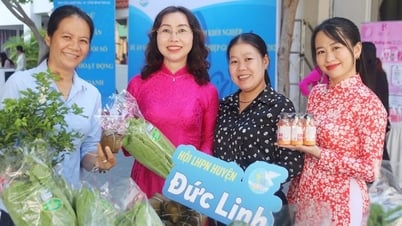














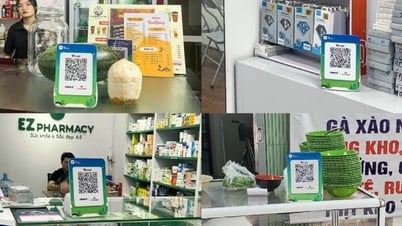





























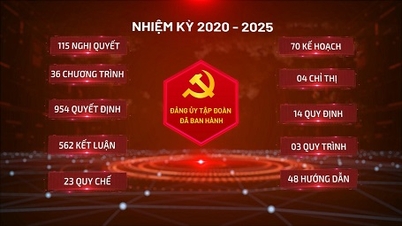













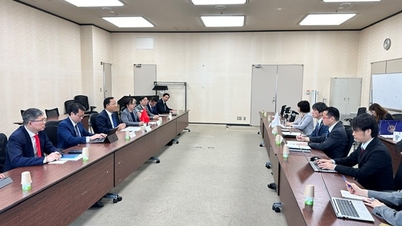



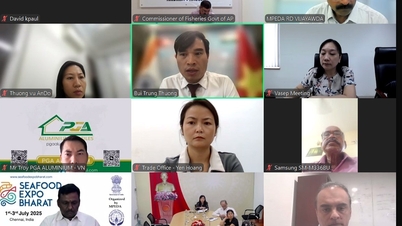


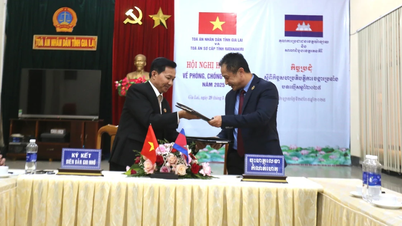





















Comment (0)